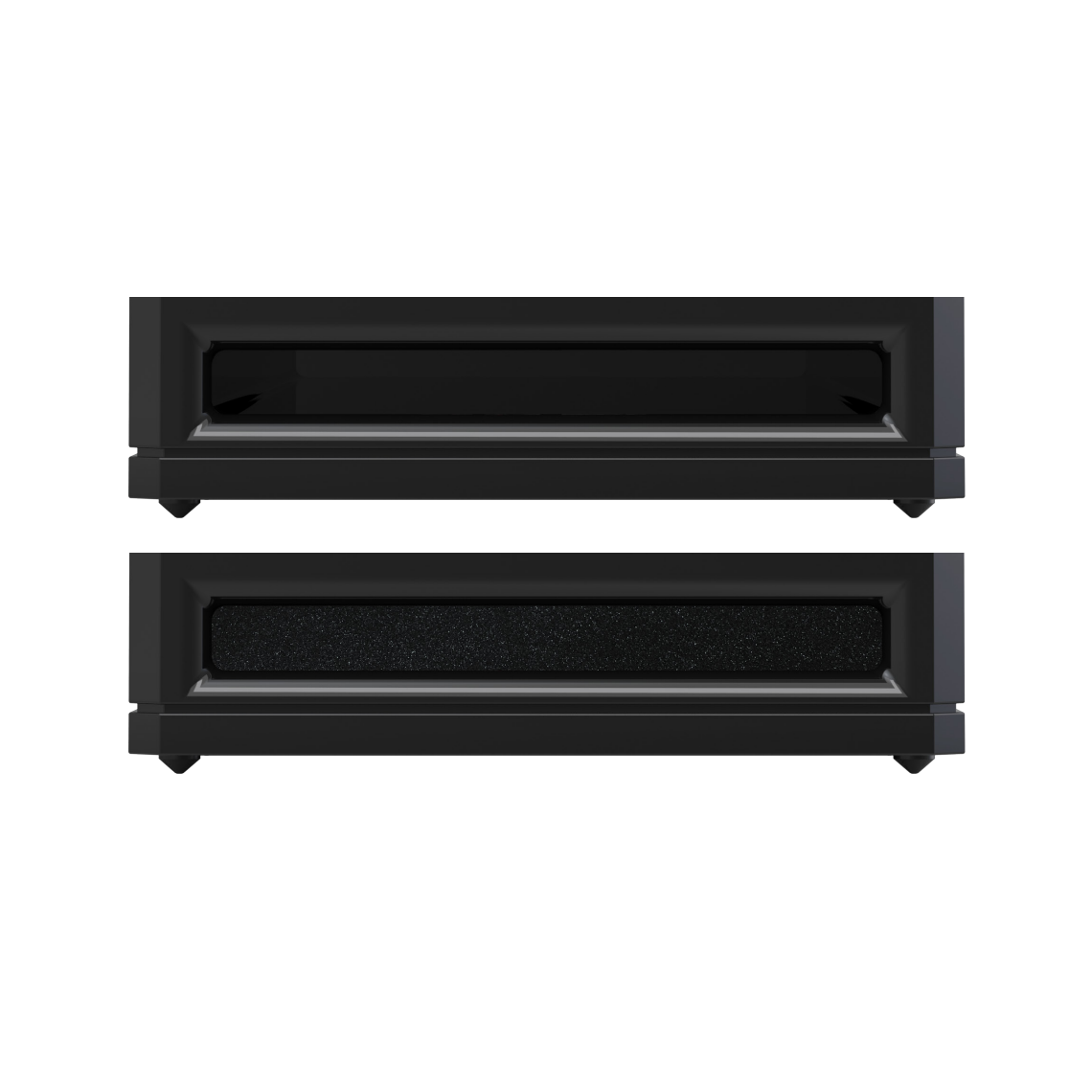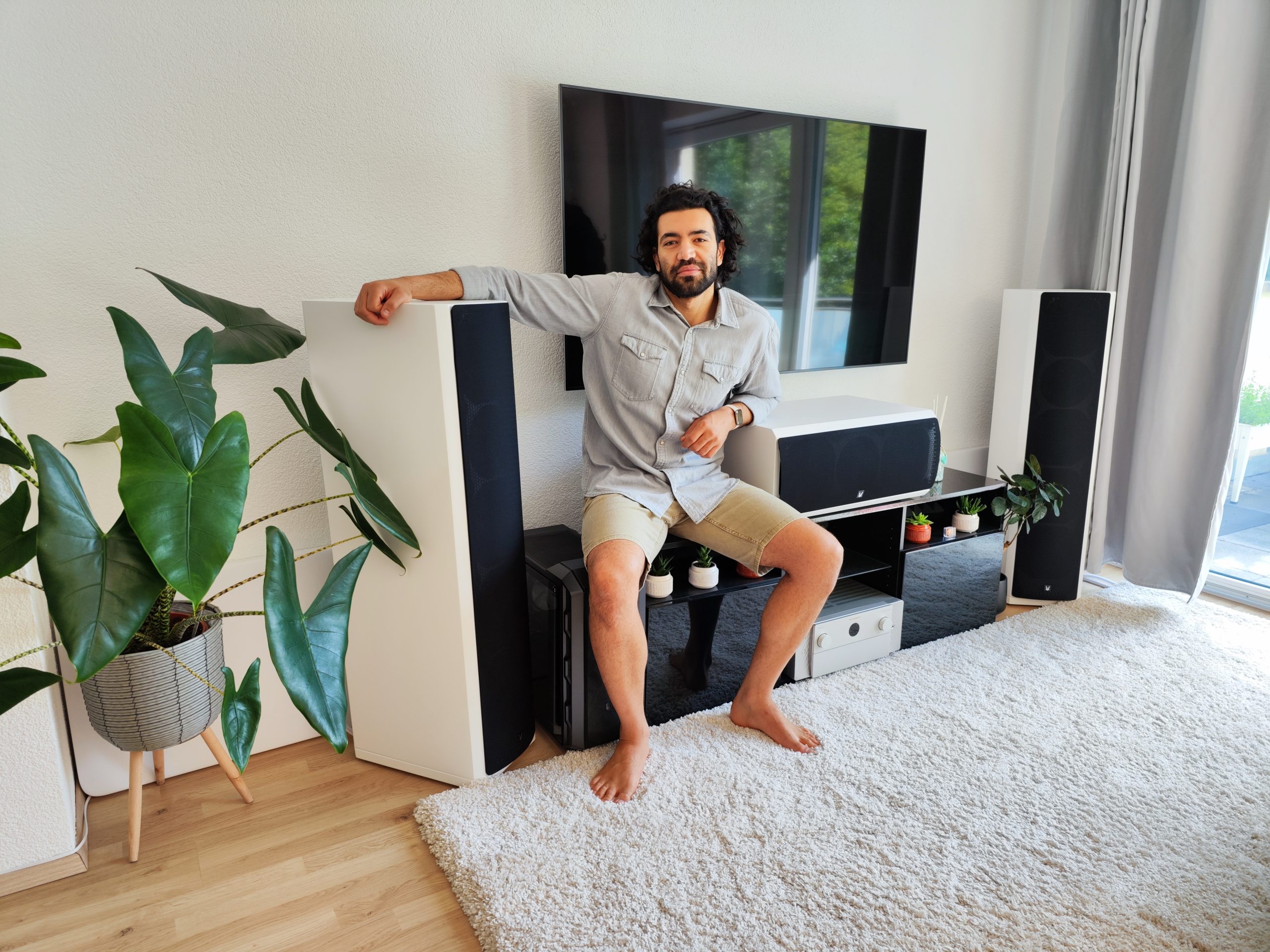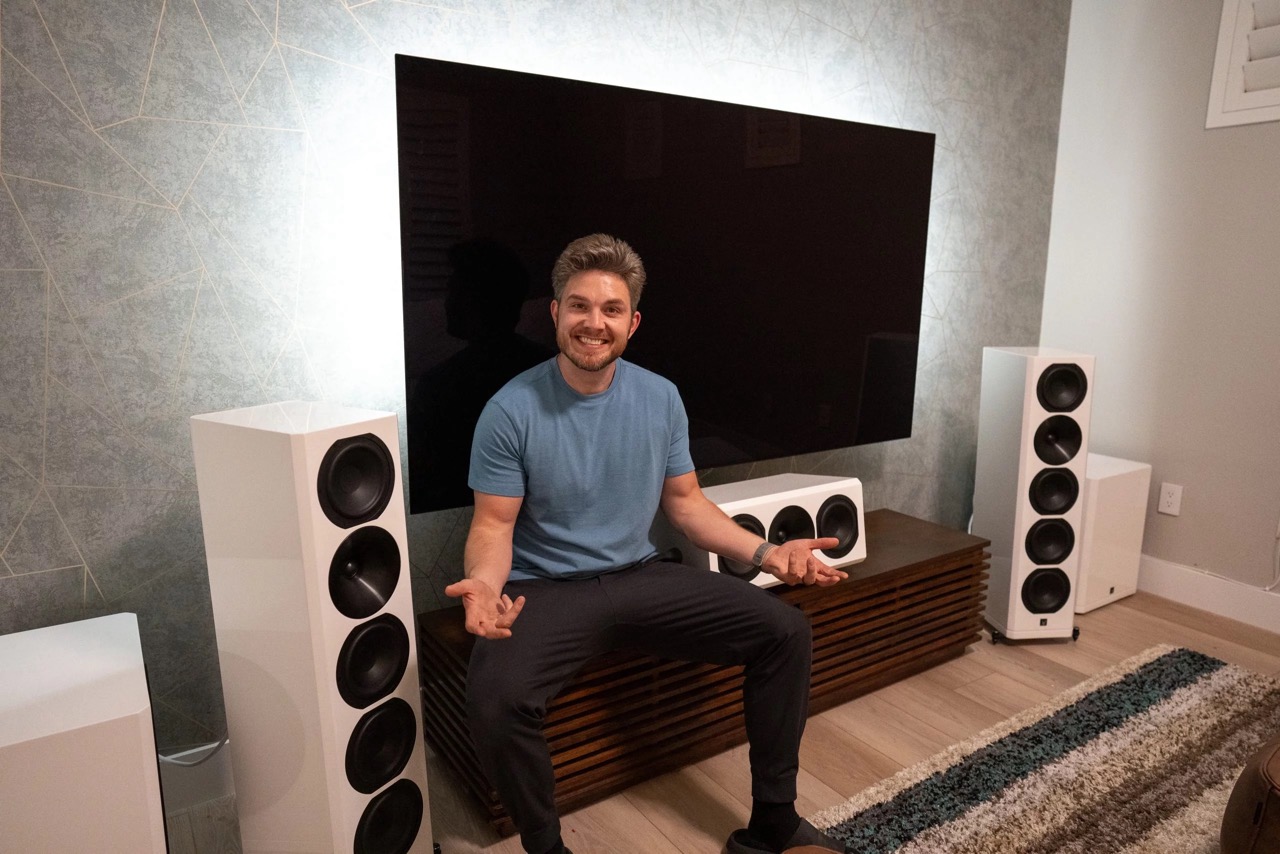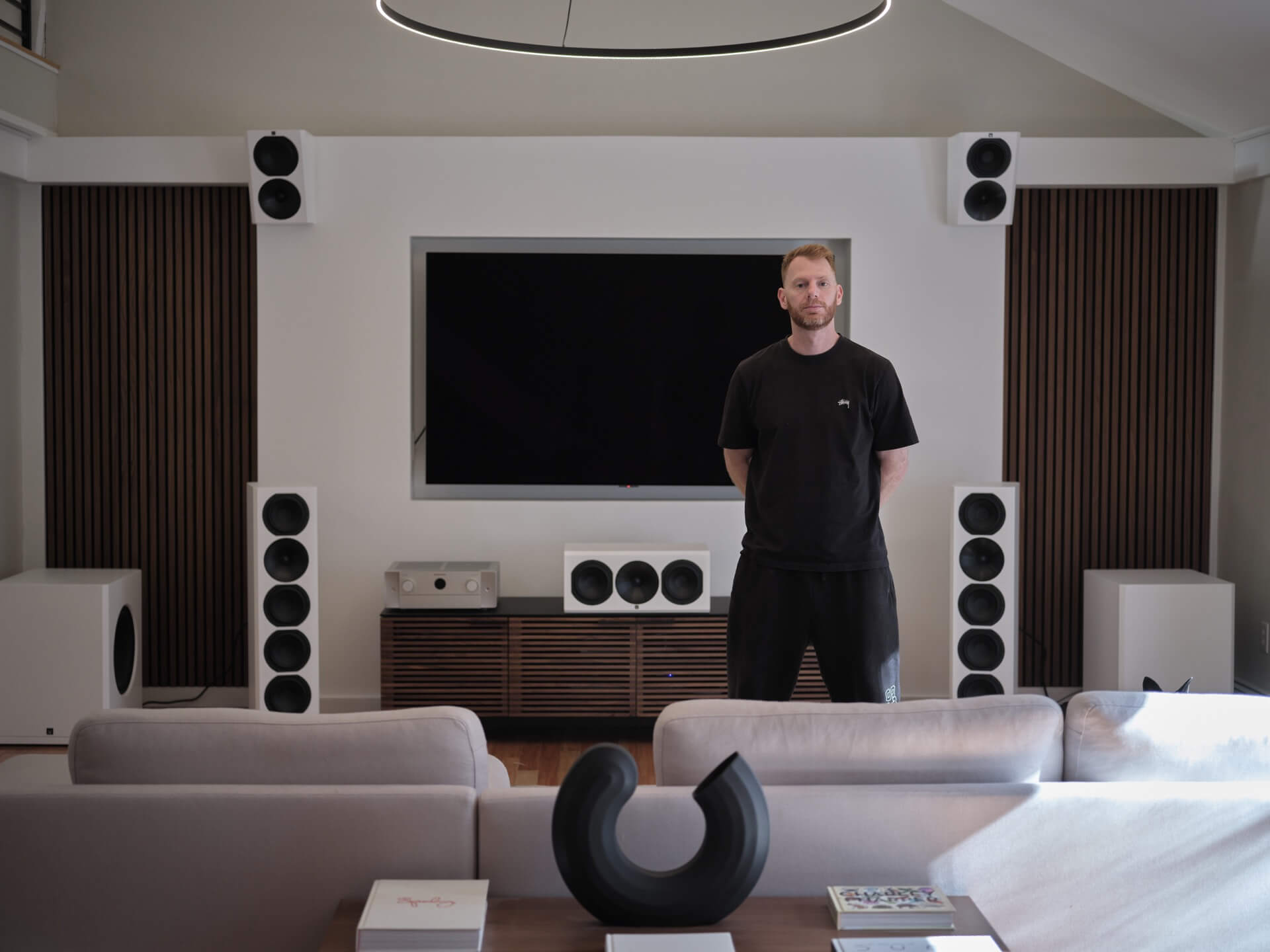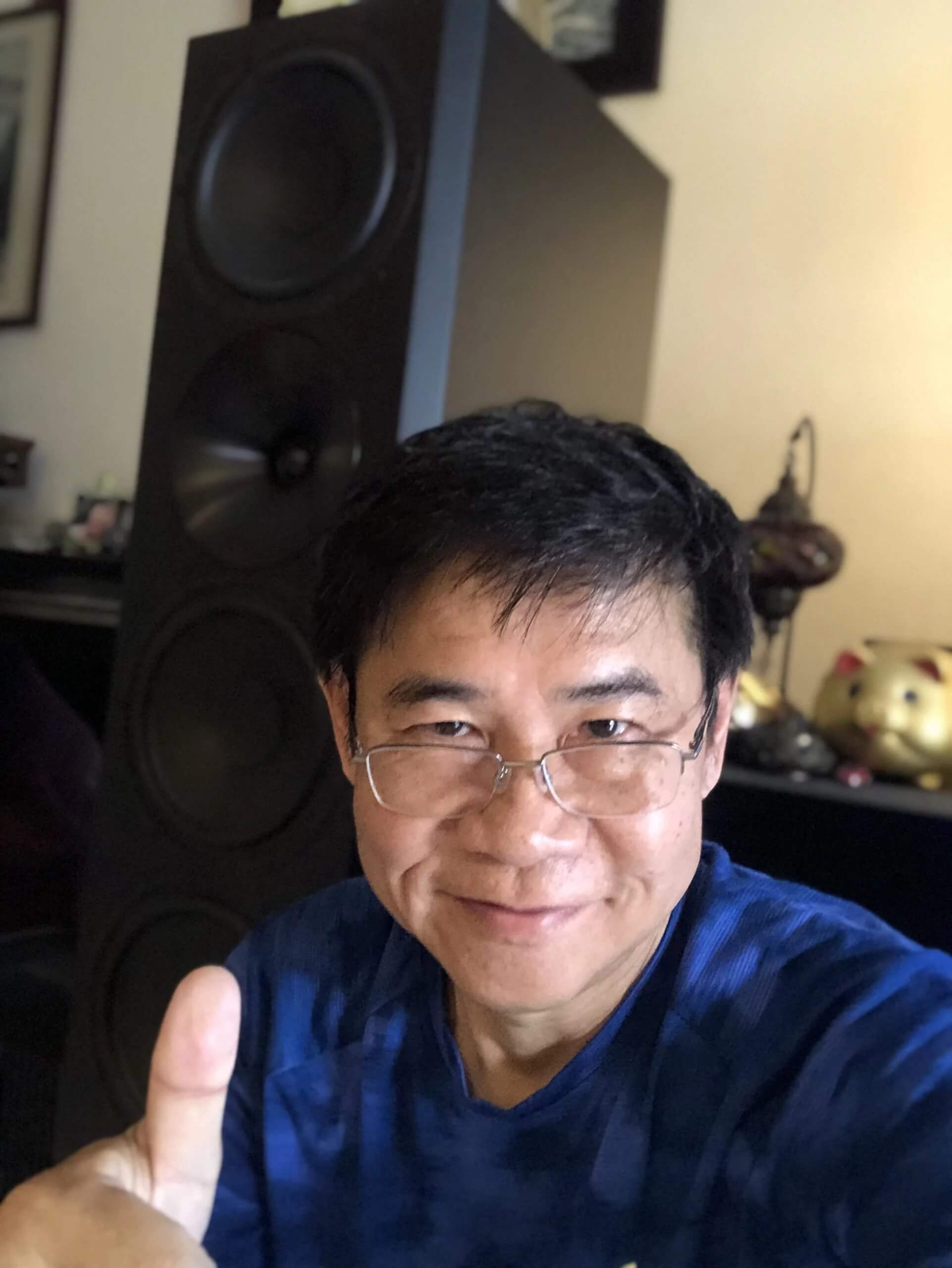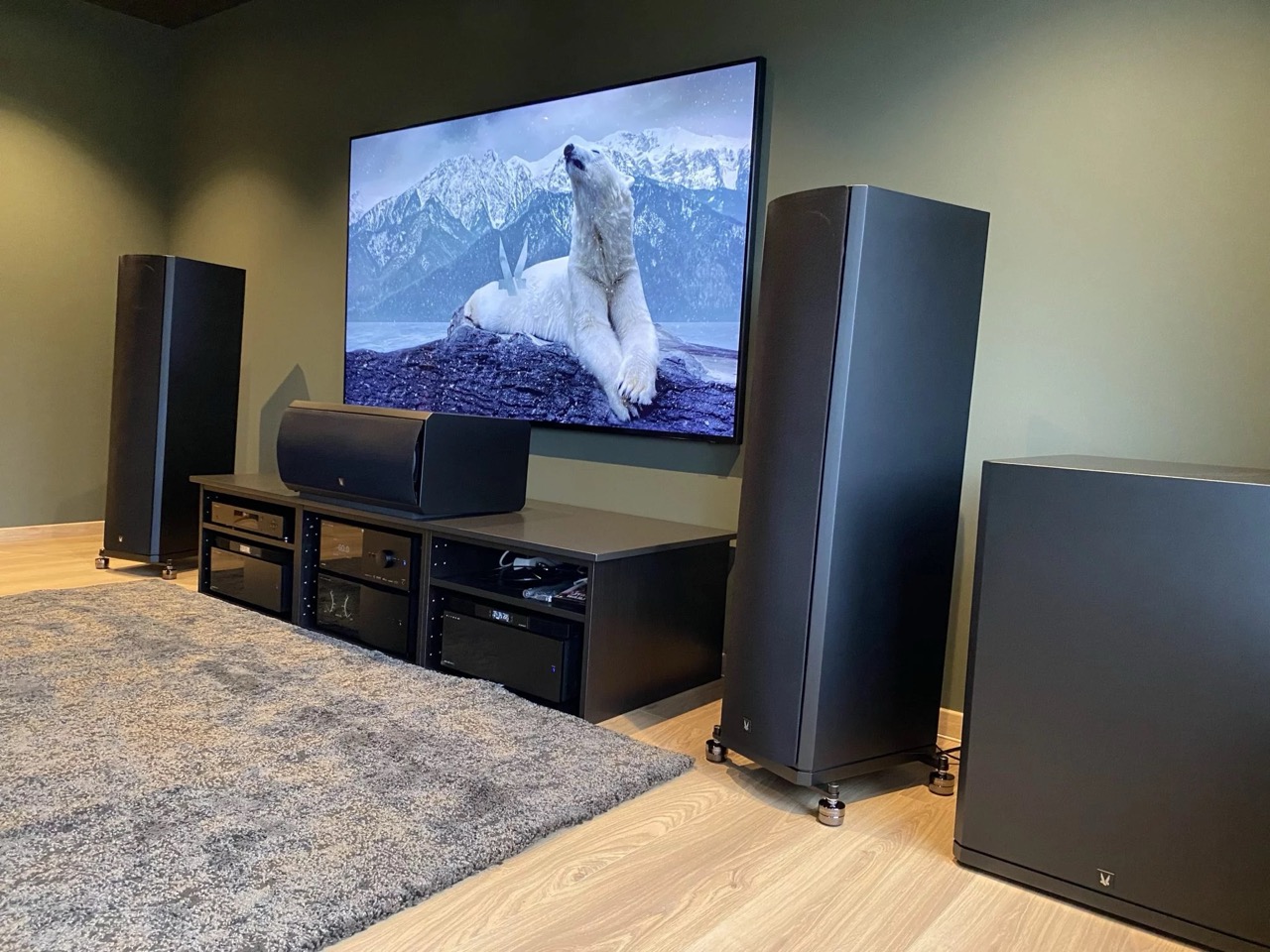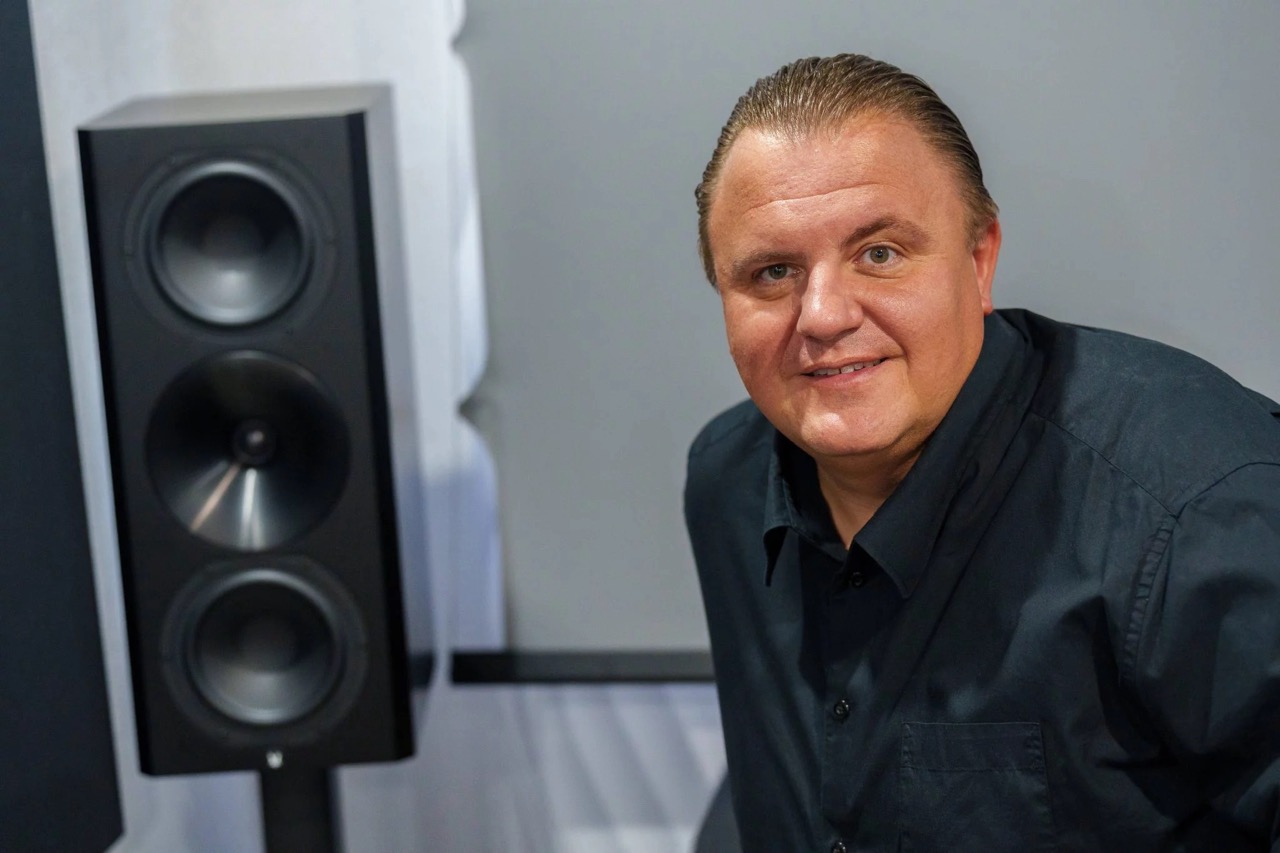Sealed box
All Arendal subwoofers start with an optimally damped, low Q sealed box design. Low-frequency performance is accurately damped delivering a tight impulse response – the time the driver takes to stop moving after the signal has passed is very short – and rolls off at the natural sealed box rate of 12dB/octave below the combined box and driver resonant frequency. This frequency (quoted as the -3dB point for the bass extension) is somewhat higher than a vented alignment, but the roll-off below a vented subwoofers -3dB point happens at 24dB/octave. On paper, the vented alignment will look deeper, but the sealed subwoofer compensates with a more extended roll-off.
As with Arendal speakers, but even more so because of the even lower frequencies involved, the sealed alignment naturally suits smaller rooms and positions closer to a wall. Room gain really kicks in hard below the rooms lowest resonant frequency, delivering 6-12dB of extra gain per octave below about 40Hz. This dovetails in nicely with the sealed alignment to give a surprisingly extended and naturally flat, in-room response and in the right room, will register output down into room-shaking single figure Hertz!
In all Arendal Subwoofers, we are offering options to tailor the output to suit your room and your tastes. Our Subwoofers have a multitude of adjustability, with 2-6 preset EQ settings to suit different room sizes and placements. The EQ1 settings are the ones that dig the deepest.
Of course, many will be quick to realise that this extra lift can also add additional bass in rooms that don’t really need it, turning action movie soundtracks into a bombastic bass-fest! We deliver the choices, you use them to suit your taste without worry because our sophisticated DSP has your back protected.
Vented box
Due to our vented subwoofers sheer internal volume, they also offer the ability to also be used in a vented alignment. By removing the foam plug from the big slot port, the low-frequency output can be extended with different bass character. Damping is slightly less optimal than the sealed alignment, but the compensation is sheer sound pressure level. Maximum extension is slightly more restricted than sealed operation, but at all audible frequencies, there is a lot of output.